I am currently on a very short little trip to ride mountain bikes in Tennessee. Yesterday I hit Windrock Bike Park (outside Knoxville) for the first time. It was nuts. So so so steep. I am not a huge fan of steep stuff and so it scared the heck out of me on a few of the black trails.

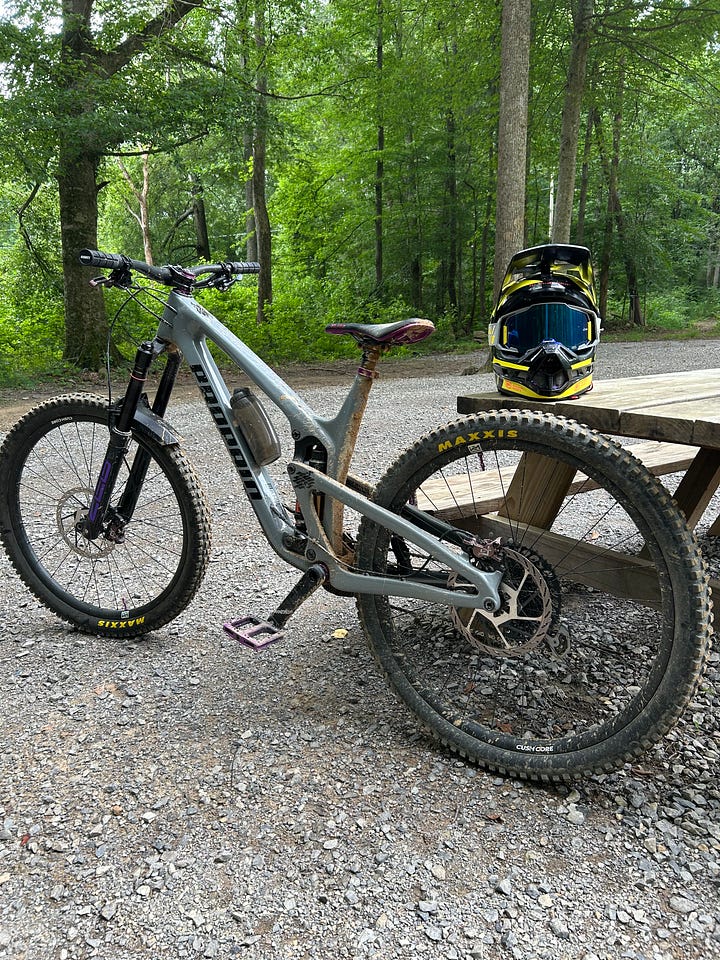
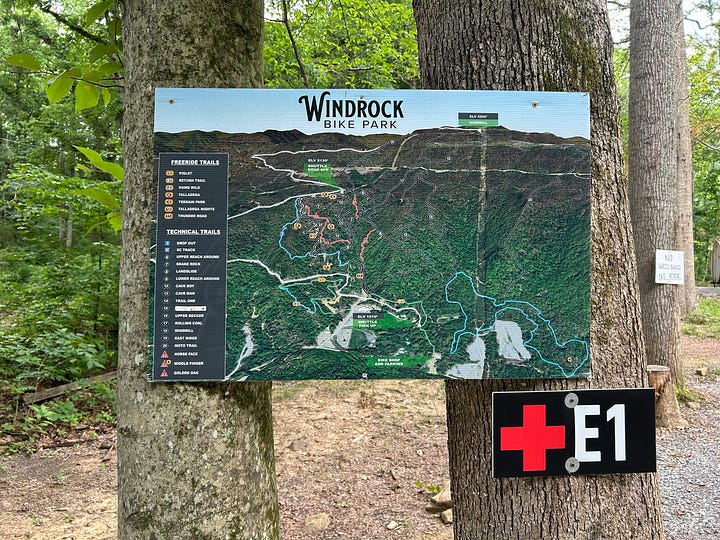
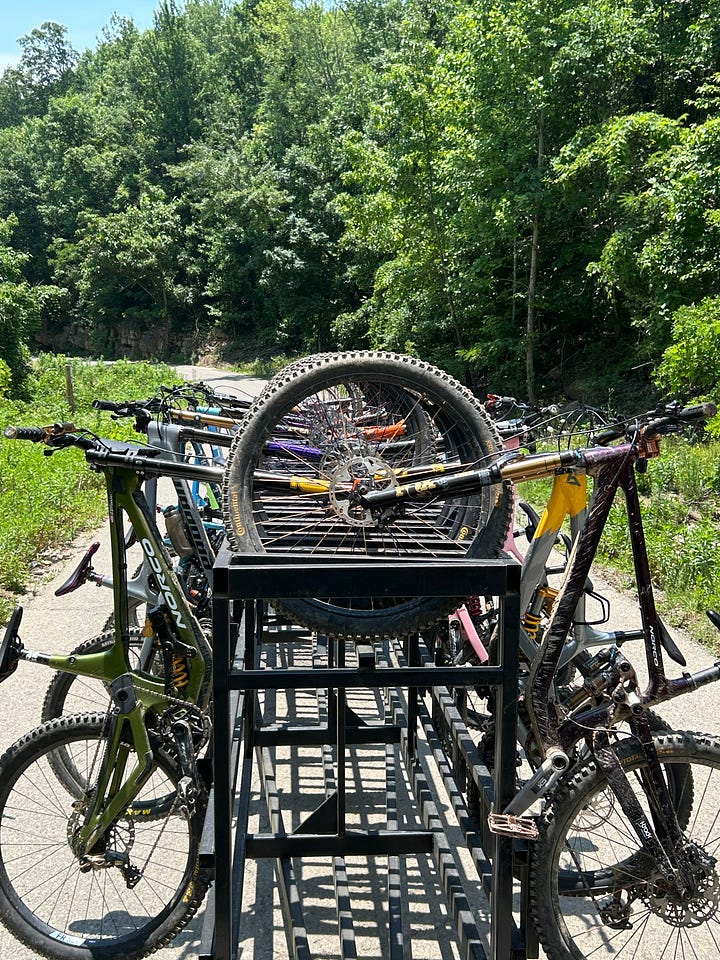
Today I am down near Chattanooga getting ready to ride White Oak Mtn this afternoon and then try out the rock gardens at Raccoon Mtn tomorrow.
Well, yesterday when I was riding, I would roll up to a feature on the trail and all I saw was death! Not literally, of course, but just those features were stupid big. Huge gaps and steep rock ledges and enormous drops, etc. Here is one of the famous ones:
Yeah, nope. I got scared just looking down the drop from the top of it. Riding up to it at 20mph and just sending it was a nonstarter for me. Maybe one day . . .
Anyway, here is the thing that really struck me though as I was following my frequent riding partner, Nathan, down some stupid steep stuff: He just sees these trails differently than I do. What causes me to grab some brakes and slow down causes him to speed up. What causes me to hesitate causes him to put power down into the pedals. Now, that is not always the case. We were on a more flowy trail where my bike really shined and I felt comfortable and on that trail I was pushing faster than he was (which is rare since he rides faster than I do almost all the time).
We were on the same trails (well until he decided to go off and make some friends and ride the double blacks, which I was fine skipping) and yet what we “saw” was just different.
OK, now, let me ask you a question. What do you “see” here?
This is the crank arm and bottom bracket that I worked on for a couple hours this morning. My buddy here in Chattanooga bought a new/used bike and had some play in the cranks and so I took it apart to try to fix it up for him. Well, I just couldn’t figure out how it all held together and so watched a bunch of videos but none of them looked like this one and so eventually got frustrated and took the bike to a local bike shop. It took them less than 30 seconds to tell me that part of the frame had come apart and that metal sleeve was not supposed to come out of the bike. Ugh.
I am no professional mechanic, but have quite a bit of experience fixing bikes and so was confident that I could figure this thing out. But, no matter how much I looked at it, I just couldn’t “see” what they immediately saw.
These two examples of Nathan on the trails and the mechanics checking out the bike illustrate two related components of how we “see” the world.
Hermeneutics
Expertise
Hermeneutics
Hermeneutics is something I talk a lot about because I ultimately understand philosophy to be a matter of hermeneutic awareness. Hermeneutics just means interpretation and how we make meaning out of what we receive in our experience. Think about it this way. We only ever see something “as” something. And what that “as” is for us depends on our lived relationship and background to the thing we are encountering. So, for someone who works at Chick-fil-A, the exit sign on the interstate that shows the CFA logo on it is likely to be very different from someone who just loves their peach milkshakes. Alternatively, cute puppy might indicate something very different to the person who sees it while out walking down the street than it would to the person who has stayed up all night with it whining and using the bathroom on the bedroom floor!


The point is that although they are the “same” things, they just don’t confront the different people in the same ways and, as such, they show up differently in their experience and interpretive assessment.
Hermeneutics is what allows us to make sense of the world as meaningful. It is not just a chaotic mess of incoherent stuff, but instead generally coherent and ordered enough to allow us to become anxious in the face of whatever does appear “as” chaotic, etc.
Nobody escapes hermeneutic frameworks. There is no context-free experience. Everything that we encounter is nested in relation to everything else that we have experienced. William James refers to this as a “web of belief” such that we constantly reassess what we think in relation to all the other stuff that we already hold to be true. Nicholas Wolterstorff suggests that we all have “control beliefs” that shape what even can count as “data” for us, and then the more data that we get, the more we refine our control beliefs in light of it.
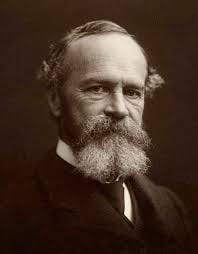
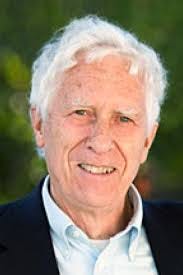
Far too often, though, we navigate the world as if things were just “obvious.” But notice that what we take for granted as obvious is itself a reflection of our hermeneutic framework. What is obvious for one person will not be for someone else. As such, we should interrogate whatever we think is so obvious that it is not up for question. But, as philosophers from Socrates to Beauvoir and from Aristotle to David Foster Wallace have all pointed out, whatever we don’t question will turn out to be the most likely site of our epistemic and moral errors.
Hermeneutic awareness, then, is not just about acknowledging our assumptions, but also about developing the humility and honesty required to have those assumptions changed if there are good reasons for doing so.
In this way, hermeneutics opens onto deliberative virtue. When we are aware of our own interpretive frames, we are better able to make sense of where others are coming from internal to their own.
I hope that you can see the personal and social benefits that developing a hermeneutic sensibility would yield. Nonetheless, there is one danger that also accompanies such an awareness. Appreciating that we are always framed by contexts of meaning can be abused such that one could claim that it is all bias and so there is no reason to even take criticism seriously. The past decade has thus become increasingly marked by appeals to “alternative facts.” Sigh.
This is NOT hermeneutic awareness, it is a straightforward disregard for evidence. Here we move from hermeneutics to expertise.
Expertise
Hermeneutics without expertise invites a disastrous nihilism regarding truth. But expertise without hermeneutics can invite a narrow vision of what is possible and lead to unacknowledged errors.
Part of why Nathan is able to ride down those steep sections so much faster than I am is that he has a much longer riding history and so much more experience. He is farther along the “expert” trajectory than I am. But, when it comes to playing drums, I am much farther down the line than he is. We all are more or less expert in a whole bunch of areas. But, developing hermeneutic awareness also cultivates a willingness to turn to experts to make up for our lack of expertise. I was able to recognize that I just didn’t know how to fix the bike bottom bracket situation and so consulted those who do have such knowledge. Unless we appreciate our limits and know how to find those who do not have the same limits, we are unable to grow and get better.
If you want to get your phone fixed, don’t reach out to me. But if you want to talk about Kierkegaard, give me a call! Expertise allows us to see things differently and this prevents us from making further mistakes so far as possible.
Sadly, we are increasingly becoming a culture where expertise is seen as some sort of elitism and hermeneutic awareness is seen as being corrupted by deception. Rather than prizing the hard work required to become good at things, we just double down on image and spin. Rather than inviting criticism in order to get better, we reward loyalty and mock those who would question our authority. Rather than seeing humility as a virtue that protects against error, we see it as weakness.
This situation is disastrous for us all.
Originally, I wrote out a bunch of examples about vaccine policy, intelligence reports, and academic integrity but to be honest the examples are just so numerous that listing a few of them almost mutes the seriousness and pervasiveness of the problem.
If I ride off that Red Bull drop at the speed of the pro rider in front of me, I might be fine, but I am not a pro and so it could go very very bad. Knowing my limits and then reaching out to people better than me to help develop the skill to push those limits further and further is the key. But, without hermeneutic awareness, I will not have the right approach to what it means to know things in the first place. I will likely overstate my abilities in ways that then deceive others who turn to me as an “expert.” This is how personal vice leads to social disaster.
We need leaders who are actual experts in their fields and show that expertise in their hermeneutic awareness and humility relative to the difficulty of knowledge. We need friends who are better than us in some areas so that we are encouraged to get better. We all need to be willing to hear criticism, but not simply to be swayed by all objections. Whether the critics are the right people to listen to will, again, go back to our hermeneutic framework and the work we have done to love truth more than power.
I ran up against my own limits on the trails yesterday and while working on the bike today. But, in both cases, I am blessed to have friends and colleagues who are there to help me not be complacent in my ignorance, but push further into the hard work that truth and goodness demand of us.
I wish our leaders spent more time reading philosophy and less time undermining the structures that help us not become the worst versions of ourselves. Complacency is fundamentally at odds with expertise and hermeneutics.
Importantly, though, only hermeneutic expertise is likely to help us realize that fact.
As a way of closing, today, here is a clip from the 311 concert I went to this week. I could make some connections to the themes above, but, nah, just enjoy:





